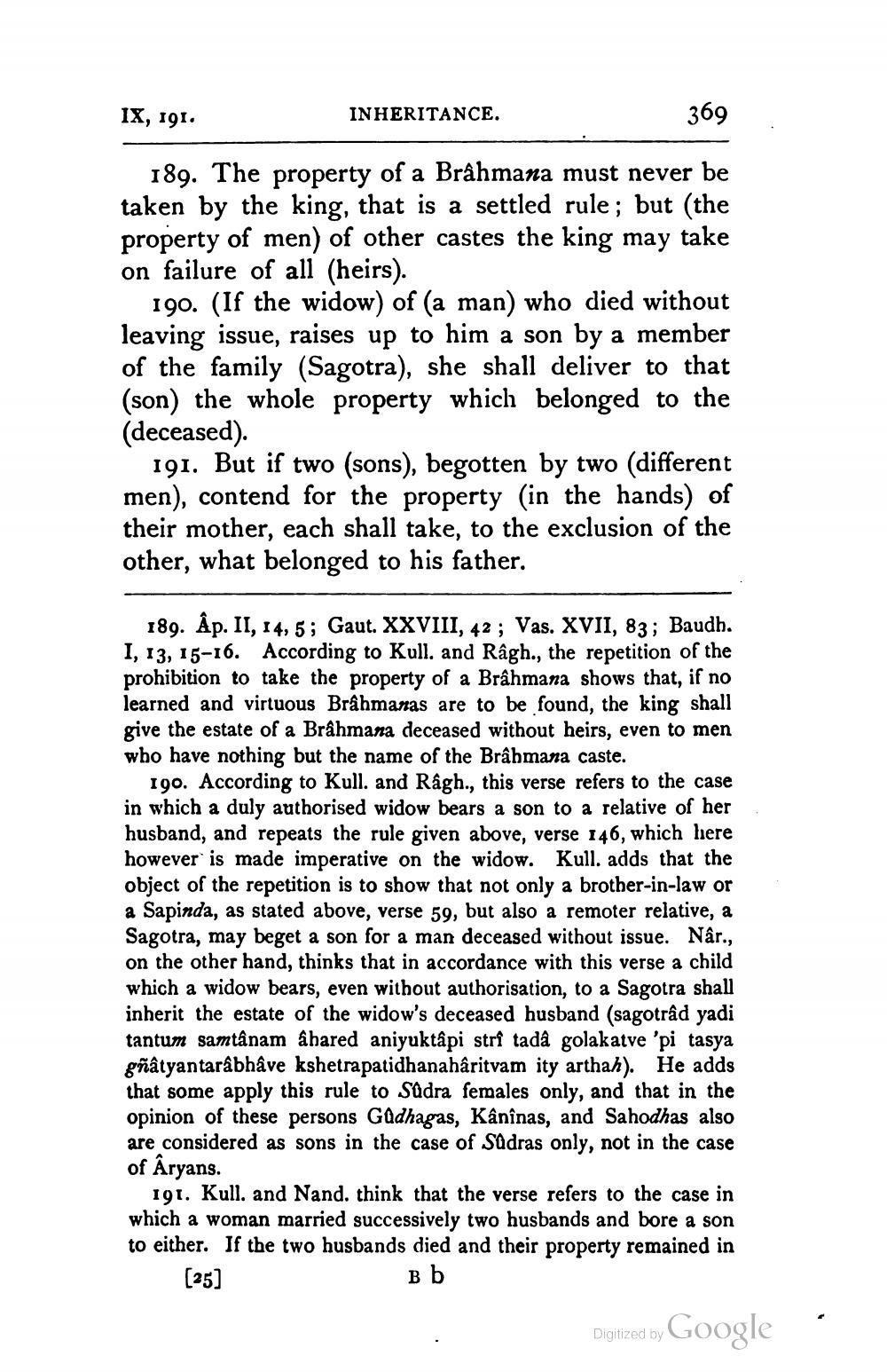________________
IX, 191.
INHERITANCE.
369
189. The property of a Brâhmana must never be taken by the king, that is a settled rule; but (the property of men) of other castes the king may take on failure of all (heirs).
190. (If the widow) of (a man) who died without leaving issue, raises up to him a son by a member of the family (Sagotra), she shall deliver to that (son) the whole property which belonged to the (deceased).
191. But if two (sons), begotten by two (different men), contend for the property in the hands) of their mother, each shall take, to the exclusion of the other, what belonged to his father.
189. Åp. II, 14, 5; Gaut. XXVIII, 42 ; Vas. XVII, 83; Baudh. I, 13, 15-16. According to Kull, and Râgh., the repetition of the prohibition to take the property of a Brâhmana shows that, if no learned and virtuous Brahmanas are to be found, the king shall give the estate of a Brâhmana deceased without heirs, even to men who have nothing but the name of the Brâhmana caste.
190. According to Kull. and Râgh., this verse refers to the case in which a duly authorised widow bears a son to a relative of her husband, and repeats the rule given above, verse 146, which here however is made imperative on the widow. Kull. adds that the object of the repetition is to show that not only a brother-in-law or a Sapinda, as stated above, verse 59, but also a remoter relative, a Sagotra, may beget a son for a man deceased without issue. Nâr., on the other hand, thinks that in accordance with this verse a child which a widow bears, even without authorisation, to a Sagotra shall inherit the estate of the widow's deceased husband (sagotrâd yadi tantum samtânam âhared aniyuktậpi strî tada golakatve 'pi tasya gñâtyantarâbhâve kshetrapatidhanahâritvam ity arthah). He adds that some apply this rule to Sudra females only, and that in the opinion of these persons Gadhagas, Kânînas, and Sahodhas also are considered as sons in the case of Şadras only, not in the case of Aryans.
191. Kull, and Nand. think that the verse refers to the case in which a woman married successively two husbands and bore a son to either. If the two husbands died and their property remained in [25]
вь
Digitized by Google




